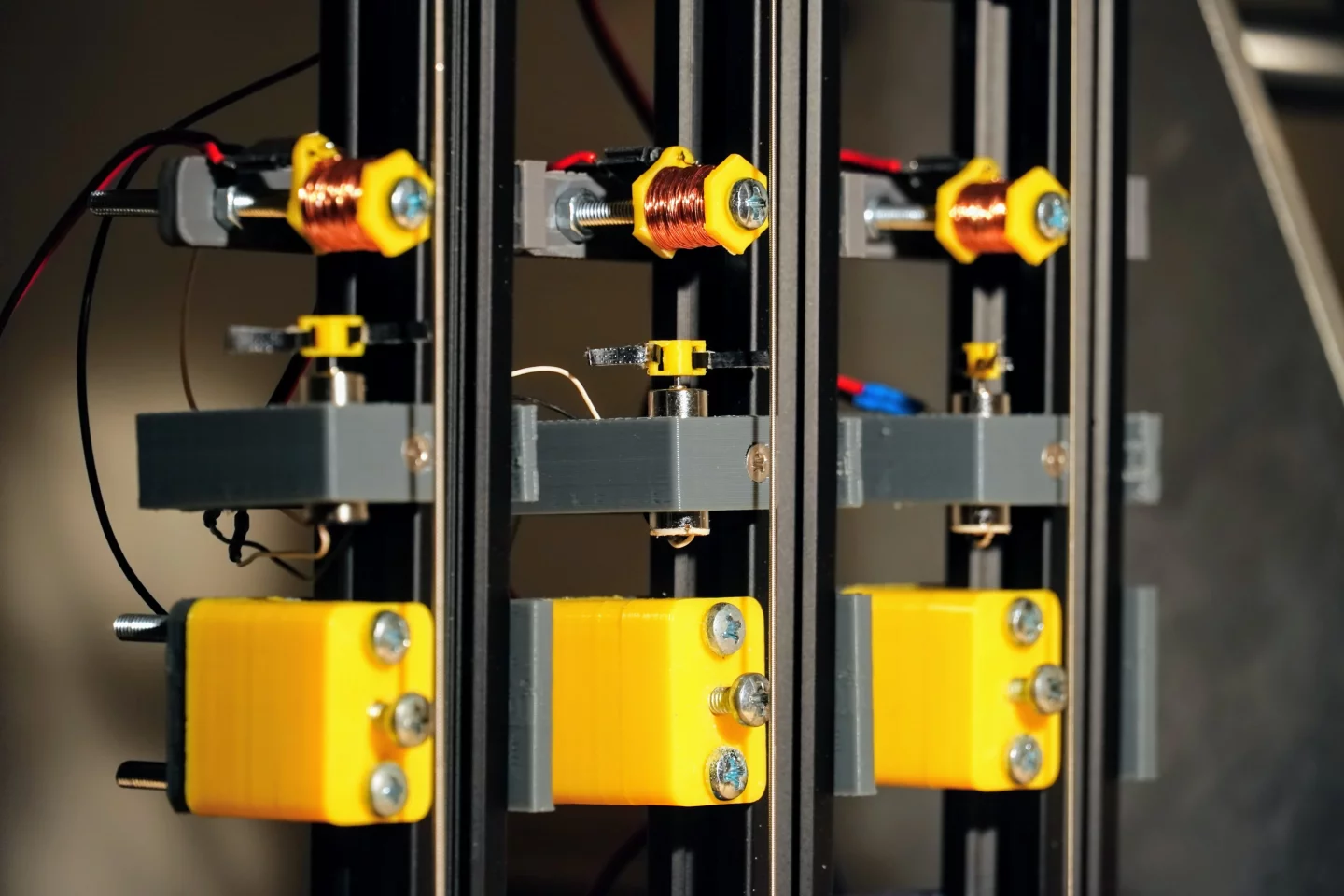Instrument maker Frank Piesik has built a three-string robotic music machine called Greg's Harp where three different actuators excite the strings in different ways to produce sound controlled by a MIDI keyboard.
Along each string are four of motorized frets called moFrets that alter pitch and represent five semi-tones per string. The strings are tuned to major thirds, and have one tone that overlaps so that string one and two share a tone and string two and three share a tone. Each moFret has a dedicated servo and driver, and an algorithm analyses incoming notes and translates them into something that the moFret controller can make playable.

The strings are excited in three different ways. First, a solenoid strikes the string from below, a set of small motors rocking tape propellers strike the strings when prompted for the second method, and finally an ebow-like actuator provides infinite sustain.
Piesik opted to use piezo pickups connected to a preamp circuit at the bridge for signal output – so that any electromagnetic noise is not registered by the setup – and two Arduino Nano microcontrollers drive the 12 servos, actuators and motors. Meanwhile, a Teensy 3.2 with audio shields interprets incoming MIDI signals from an external keyboard and takes care of audio processing.
It's an interesting build created for a friend that sounds as good as it looks, as you can see in the video below.
Source: FranklyBuilt




